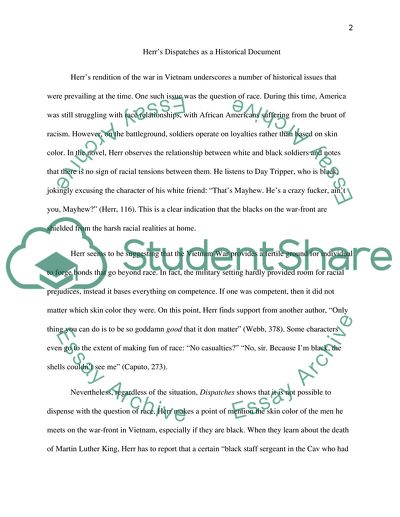Cite this document
(“Dispatches by Michael Herr (Vietnam) Book Report/Review”, n.d.)
Retrieved from https://studentshare.org/history/1689647-dispatches-by-michael-herr-vietnam
Retrieved from https://studentshare.org/history/1689647-dispatches-by-michael-herr-vietnam
(Dispatches by Michael Herr (Vietnam) Book Report/Review)
https://studentshare.org/history/1689647-dispatches-by-michael-herr-vietnam.
https://studentshare.org/history/1689647-dispatches-by-michael-herr-vietnam.
“Dispatches by Michael Herr (Vietnam) Book Report/Review”, n.d. https://studentshare.org/history/1689647-dispatches-by-michael-herr-vietnam.


